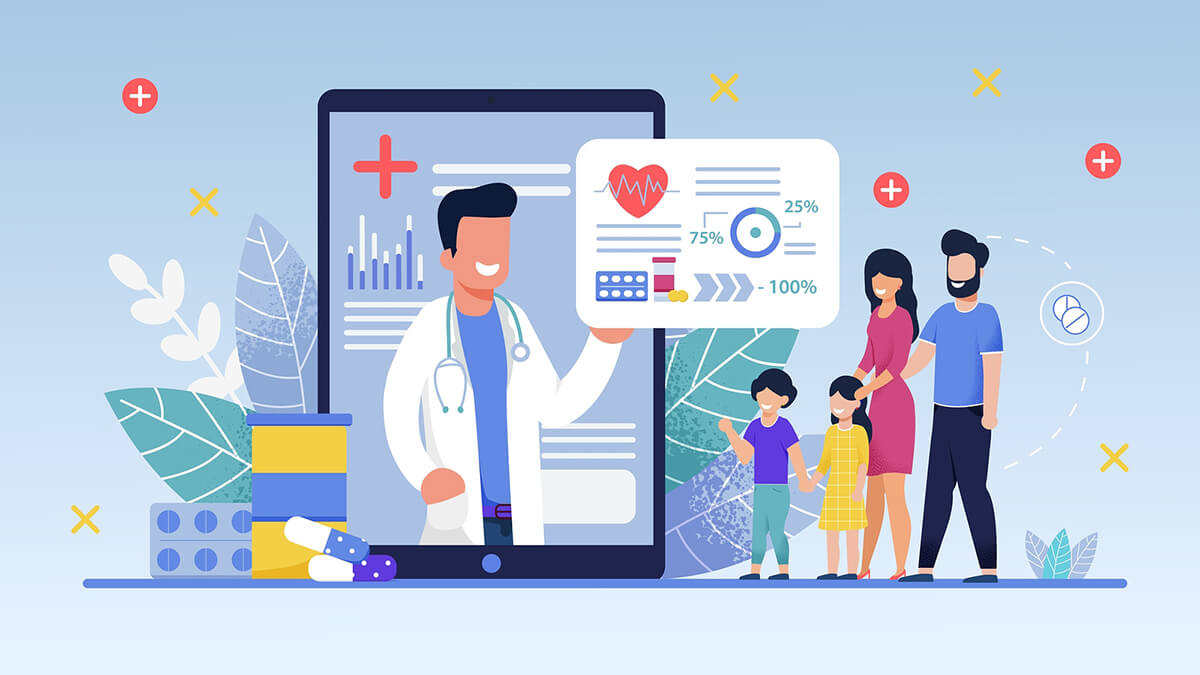The Institute of Medicine (now the National Academy of Medicine) defines health literacy as “the degree to which individuals have the capacity to obtain, process, and understand basic health information and services needed to make appropriate health decisions.” And according to a report on health outcomes by the Agency for Healthcare Research and Quality, patients who demonstrate low health literacy use more healthcare services, experience increased hospitalizations and emergency room visits, and have a higher risk of death.1 Effective communication is one way to promote both community health and successful patient-practitioner relationships, but what are some of the other tools needed for patients to develop a higher health literacy? According to a required reading assignment taken from the BS in Health Studies online course Strategies for Health Communication, patients must take charge of their own healthcare, and that requires certain skills. The detail can be found in this excerpt.2
Skills Needed for Health Literacy
Patients are often faced with complex information and treatment decisions. Patients need to:
- Access healthcare services
- Analyze relative risks and benefits
- Calculate dosages
- Communicate with healthcare providers
- Evaluate information for credibility and quality
- Interpret test results
- Locate health information
In order to accomplish these tasks, individuals may need to be:
- Visually literate (able to understand graphs or other visual information)
- Computer literate (able to operate a computer)
- Information literate (able to obtain and apply relevant information)
- Numerically or computationally literate (able to calculate or reason numerically)
Oral language skills are important as well. Patients need to articulate their health concerns and describe their symptoms accurately. They need to ask pertinent questions, and they need to understand spoken medical advice or treatment directions. In an age of shared responsibility between physician and patient for healthcare, patients need strong decision-making skills. With the development of the internet as a source of health information, health literacy may also include the ability to search the internet and evaluate websites.
Acquire Skills to Improve Community Health and Health Services With Walden
If you want to pursue a career that enables you to improve quality of life for individuals, families, and communities, earning your bachelor’s in health studies can put you on the right track. At Walden—an accredited university—you can gain the knowledge and skills you need to advocate for better health education and literacy by enrolling in the BS in Health Studies program. With a variety of concentrations to choose from, including Health Psychology and Behavior and Healthcare Management, you can match your program to your interests. And with online education, you can earn your degree from wherever you have internet access—no need to rearrange your schedule or commute to campus. Take your classes at whatever time of day works best for you as you develop the tools you need to advance your career and make a difference in community health and health services.
Walden University is an accredited institution offering a BS in Health Studies degree program online. Expand your career options and earn your degree using a convenient, flexible learning platform that fits your busy life.
1Source: https://nnlm.gov/initiatives/topics/health-literacy
2Source: Walden curriculum
https://wa.elearning.laureate.net/bbcswebdav/institution/USW1/_MASTERS_/BS_HLST/HLTH_4380_WC/USW1_HLTH_4380_week04.html?course_uid=USW1.HLTH.4380.WC.DEV.MASTER&service_url=https://wa.elearning.laureate.net/webapps/bbgs-deep-links-BBLEARN/app/wslinks&b2Uri=https%3A%2F%2Fwa.elearning.laureate.net%2Fwebapps%2Fbbgs-deep-links-BBLEARN#resources
Walden University is accredited by The Higher Learning Commission, www.hlcommission.org.




